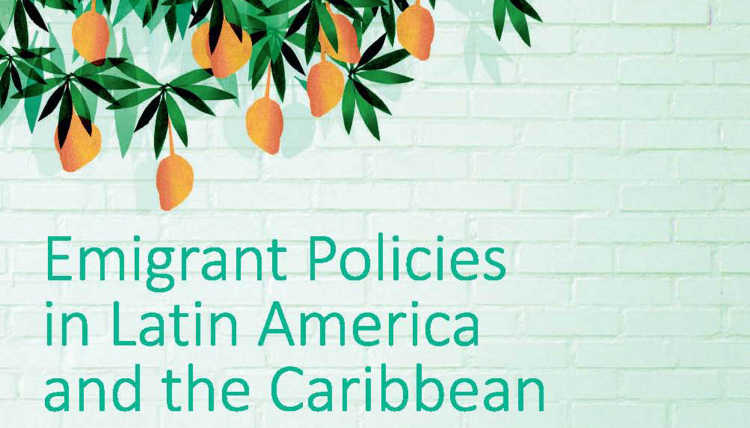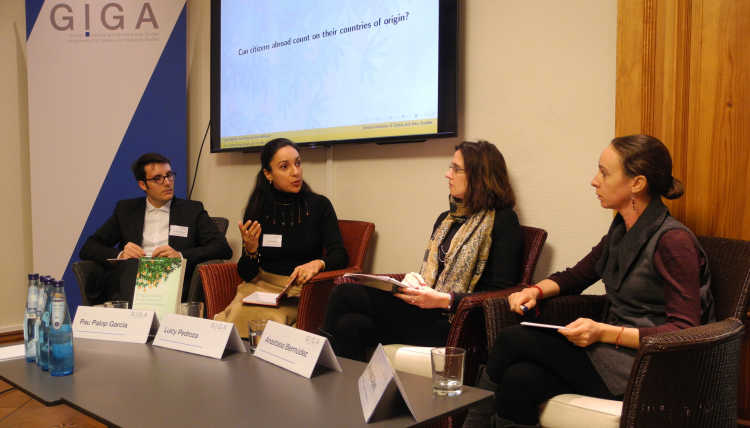Publication | 17/01/2017
Emigrant Policies in Latin America and the Caribbean
In a new book, GIGA researchers analyse the emigrant policies of 22 Latin American and Caribbean states.

In the course of globalisation people have become increasingly mobile and interconnected. Consequently, emigration processes have changed. Whereas for a long time states considered emigration a loss of citizens for the polity, moving abroad no longer means an abrupt disconnection with the state of origin. Emigrants can stay in touch with their families, friends, and the society in general on a daily basis through modern communication technologies. People are often involved in more than just one nation state. As a result, governments have increased their efforts to strengthen the rights of emigrants.
How do states try to engage with their citizens abroad in order to involve them in social, economic, and political processes? GIGA researchers Luicy Pedroza, Pau Palop, and Bert Hoffmann have examined this and other questions in their book Emigrant Policies in Latin America and the Caribbean, which has been published in cooperation with Flacso-Chile. For three years the researchers studied the emigrant policies of 22 countries in Latin America and the Caribbean, using a comparative approach. The book provides the most comprehensive assessment of the region’s emigrant policies available today and contains numerous insights on their characteristics and dynamics.
Read on
Luicy Pedroza / Pau Palop / Bert Hoffmann Emigrant Policies in Latin America and the Caribbean Santiago de Chile: FLASCO Chile, 2016



